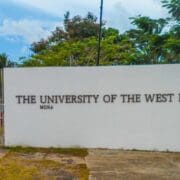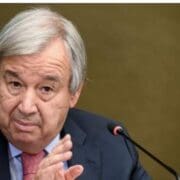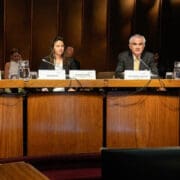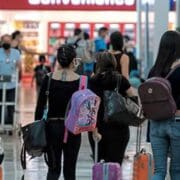Actor Nixon Cesar honours Haitian immigrant roots with new role in Arthur Miller’s The Hook
Black Immigrant Daily News
Haitian American actor Nixon Cesar has joined the cast of the upcoming stage production of Arthur Miller’s The Hook, which will be produced in Red Hook, Brooklyn by the Brave New World Repertory Theatre in June of this year.
The Hook is playwright Ron Hutchinson’s stage adaptation of an unproduced screenplay of the same name written by Miller in 1947 and retrieved from among his manuscripts after his death. Set on the ship docks of Red Hook, the play examines the life and death struggle for survival on the waterfront, where the ever-present danger to the workers and their families comes both from the job itself and the mafia gangsters who control the docks.
In an inspired site specific staging, the production- directed by Brave New World Artistic Director Claire Beckman- will utilize the gangway and the barge of The Waterfront Museum moored in Red Hook as the stage. Production notes state that Beckman hopes the immersive setting will viscerally capture the fight for human dignity that is the central theme of the play.
Cesar signed on to the project earlier in February and will play the role of Enzo, a Haitian born longshoreman who immigrates to the United States with his wife Loretta (Celeste Muniz) and family in search of a better life, only to then encounter racism and rife corruption on the piers. For the Brooklyn based actor, who was himself born in Haiti and immigrated to the USA at age 2, his participation in the much anticipated production represents a full circle moment.
As Cesar puts it, “My father Gerald Cesar came to the United States from Haiti in the late 1960s to work as an underwater welder at the Brooklyn Navy Ship Yard. He was one of only two black men who worked there at the time. Like the character I play in The Hook, my father also came to this country determined to improve the lives and the future of his family. He used to take me to the docks with him sometimes when I was a little boy, and show me what he did and how things worked. So the fact that I now get to be part of this story, living through many of the experiences my dad would have had, feels kind of surreal.”
Cesar’s father eventually retired from his job at the docks following a serious accident which resulted in him being burnt on over 80% of his body. Cesar still recalls the pride with which his father would reflect on his days as a dockworker, and the dignity it brought him to know that his work in his adopted country mattered- that he was making a difference.
Cesar also pays tribute to Brave New World Artistic Director Beckman, who took the artistic decision to cast Cesar’s character Enzo as a man of color and a Caribbean immigrant.
“In the original script all the dock workers are Irish or Italian,” Cesar says, “But Claire felt that this production needed to reflect the full, multicultural humanity of the immigrants who would have been on the waterfront at the time. I will get to use some of my Haitian creole in my dialogue also, so for me this is an opportunity to explore and showcase my own Caribbean roots and my Haitian immigrant experience. Signing on for the project during Black History Month feels to me even more significant…As though the stars have aligned for me to be returning to the stage to tell this particular story at this particular time.”
Cesar studied acting at The Lee Strasberg Institute and began his career in theater, making his Off Broadway debut in the romantic comedy Love and Marriage and New York City written by David Heron and directed by Woodie King Jr. at the Billie Holiday Theater. Along with his cast members, he earned an Audelco Award nomination for his performance. His last stage appearance was in writer- director Paul Calderon’s Master of The Crossroads at The Bridge Theater.
In recent years he has focused primarily on film and television, appearing in films such as Ramsey– currently streaming on Amazon, Hulu and other platforms- as well as Grown, written and directed by New Amsterdam actor Jocko Sims, and which will premiere later this year at the South by Southwest Film Festival.
He is scheduled to start shooting the independent feature Black Heart in the early spring.
The cast of The Hook also includes Paul Bomba, John Edmond Morgan, Matt Biagni and Craig A. Grant among others.
Additional production information will be released in due course.
Donate At Caribbean News Service, we do not charge for our content and we want to keep it that way. We are seeking support from individuals and organisations so we can continue our work & develop CNS further.
NewsAmericasNow.com










